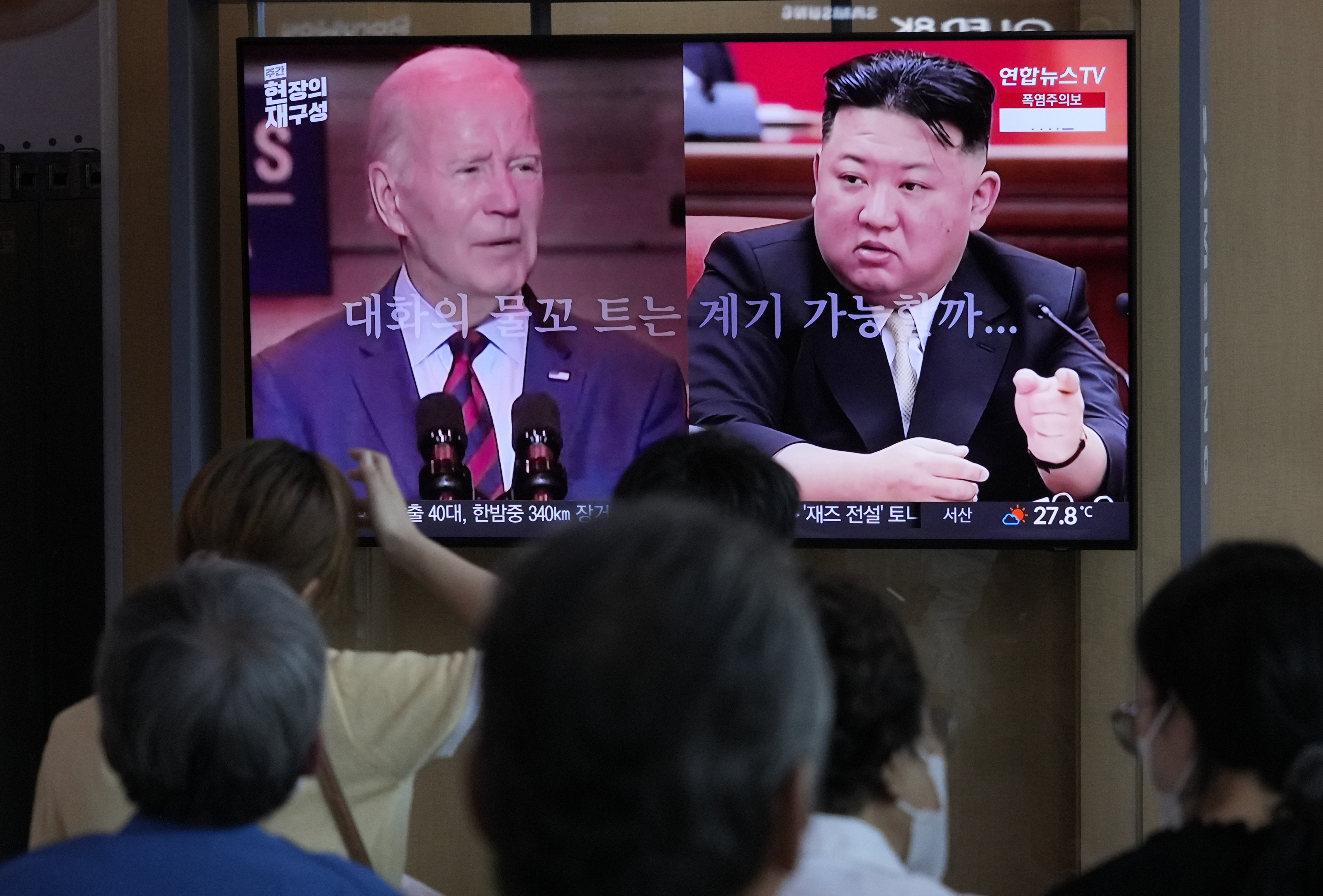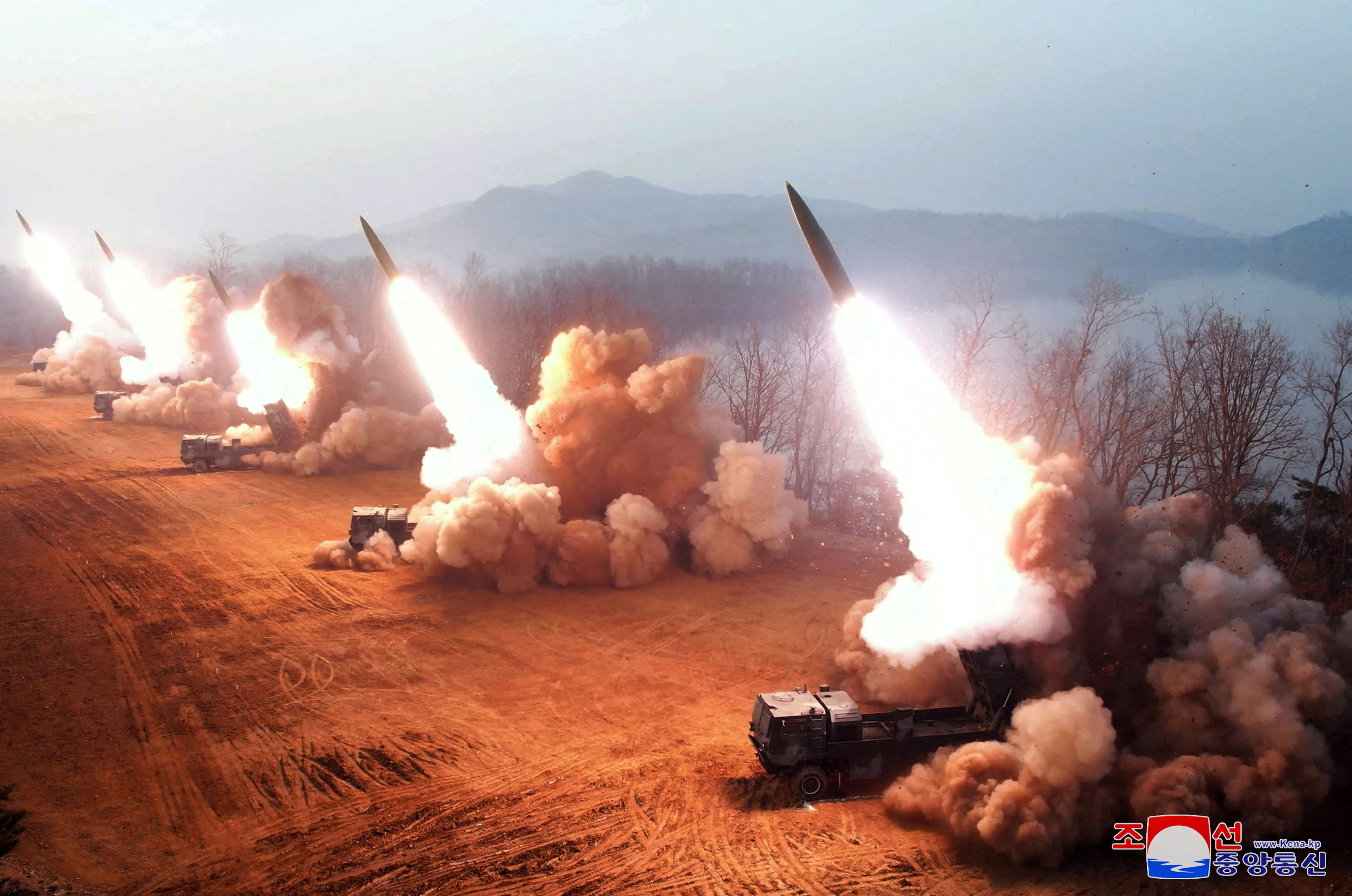
North Korean leader Kim Jong Un called for his military to be constantly ready for combat to thwart its rivals’ plots to invade his country, state media said Tuesday, as the U.S., South Korea and Japan held a trilateral naval exercise to deal with North Korea’s evolving nuclear threats.
The U.S. and South Korean militaries have been separately holding summer bilateral exercises since last week. North Korea views such U.S.-involved training as an invasion rehearsal, though Washington and its partners maintain their drills are defensive.
Kim said in a speech marking the country’s Navy Day on Monday that the waters off the Korean Peninsula have been made unstable “with the danger of a nuclear war” because of U.S.-led hostilities, according to the official Korean Central News Agency.
He accused the U.S. of conducting “more frantic” naval drills with its allies and deploying strategic assets in waters around the Korean Peninsula. Kim also cited a recent U.S.-South Korean-Japanese summit where an agreement to boost defense cooperation was reached to counter North Korea’s nuclear program. Kim called President Joe Biden, South Korean President Yoon Suk Yeol and Japanese Prime Minister Fumio Kishida “the gang bosses” of the three countries.
Get Tri-state area news delivered to your inbox.> Sign up for NBC New York's News Headlines newsletter.
“The prevailing situation requires our navy to put all its efforts into rounding off the war readiness to maintain the constant combat alertness and get prepared to break the enemy’s will for war in contingency,” Kim said.
South Korea's Foreign Ministry expressed deep regret over Kim's use of “very rude language” to slander the South Korean, U.S. and Japanese leaders. Spokesperson Lim Soosuk told reporters that North Korea must immediately stop acts that raise tensions with “reckless threats and provocation.”
Tuesday’s South Korean-U.S.-Japanese drills in international waters off South Korea’s southern Jeju island involved naval destroyers from the three countries. The training was aimed at mastering procedures for detecting, tracking and sharing information about incoming North Korean missiles, South Korea’s navy said in a statement.
The U.S. and South Korean militaries began the 11-day bilateral drills on Aug. 21. The annual Ulchi Freedom Shield training is a computer-simulated command post exercise. But they included field exercises this year.
North Korea typically responds to U.S.-South Korean military drills with its own missile tests. Last Thursday, its second attempt to launch a spy satellite into space failed. The day the drills began, KCNA said Kim had observed the test-firings of strategic cruise missiles.
Since the beginning of 2022, North Korea has carried out more than 100 weapons tests, many of them involving nuclear-capable missiles designed to strike the U.S., South Korea and Japan. Many experts say North Korea ultimately wants to use its boosted military capabilities to wrest greater concessions from the U.S.
The North’s testing spree has forced the U.S. and South Korea to expand their drills, resume trilateral training involving Japan and enhance “regular visibility” of U.S. strategic assets to the Korean Peninsula. In July, the United States deployed a nuclear-armed submarine to South Korea for the first time in four decades.
Earlier this month, the leaders of the U.S., South Korea and Japan held their first-ever stand-alone trilateral summit at Camp David. During the meeting, they announced they intend to put into operation by year’s end the sharing of real-time missile warning data on North Korea and hold annual trilateral exercises.
Kim has been pushing hard to expand his nuclear arsenal and introduce a slew of sophisticated weapons systems.
During his Navy Day speech, Kim said that military units of each service would be given new weaponry in line with the government’s decision to expand the operation of tactical nuclear weapons. He said the navy would become “a component of the state nuclear deterrence carrying out the strategic duty.”
This suggests North Korea would deploy new nuclear-capable missiles to its navy and other military services.
State media photos showed Kim visiting the navy headquarters with his daughter, reportedly named Ju Ae and aged about 10. It was her first public appearance since mid-May. Kim has brought her to a series of public events since November, sparking speculation about her political status.
South Korean officials say Kim hasn’t anointed her as his heir. They believe Kim likely attempts to use his daughter’s public appearance as a way to show his people that one of his children would one day inherit his power in what would be the country’s third hereditary power transfer.



